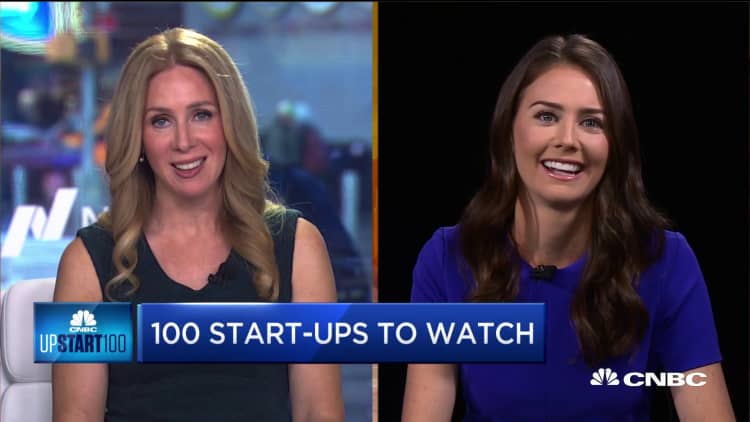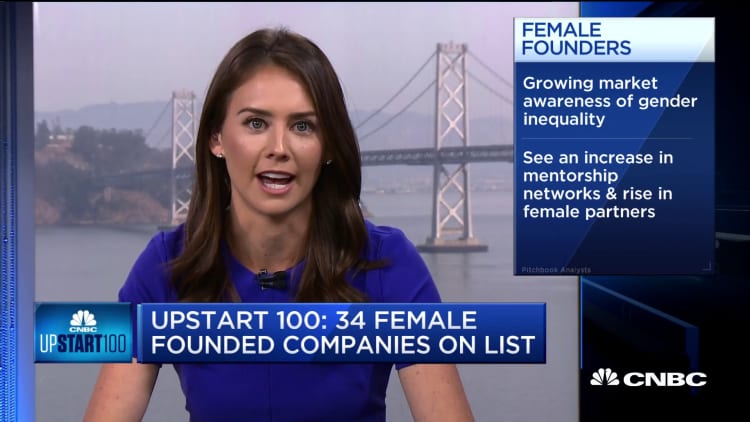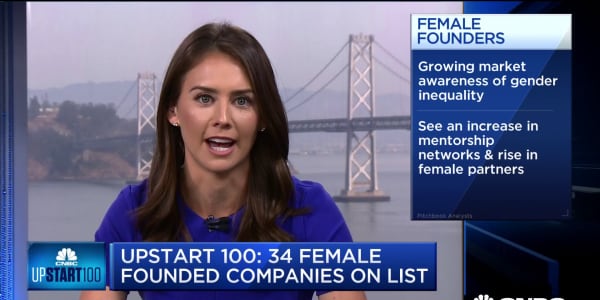
It's year three for the CNBC Upstart List, which was started out of a desire to recognize early stage start-ups that are often overshadowed by bigger, better-funded private companies.
For the big guys, 2019 has been a tough year, with one-time VC darlings colliding with the realities of the public markets and seeing their unicorn valuations cut down to size.
But you won't find any unicorns on this list. Each upstart has raised no more than $50 million in venture capital, which means valuations are still relatively low, while promise and potential is high. And while the unicorns of 2019 have represented at times frothy, fadlike market trends, the Upstart 100 companies present a broader picture of where venture capitalists are placing their bets on the more distant future.
More from Upstart 100:
Amazon has triggered an arms race in this technology
Elon Musk's brother Kimbal brings container farms to grocery stores in US
A start-up that snared millions from NBA stars to challenge TV sports
According to PitchBook, venture capitalists invested in almost 2,000 early stage companies in the first half of this year, an all-time high. And despite a dropoff in deals completed in the third quarter, early stage companies already have pulled in more than $30 billion in funding year-to-date. Sectors like fintech, health care and cybersecurity have been particularly hot for early stage investors.
Early injections of relatively large amounts of capital means there are hundreds of young companies around the world with the potential to grow to become acquisition targets or public companies themselves. The 100 that have earned the right to become Upstarts are very much on that path, with many winning big-name enterprise partners or gathering throngs of loyal consumers, while attracting investment from the world's top angel investors and venture capitalists.
How we chose these 100 upstarts
More than 600 start-ups responded to our call for submissions, supplying information about the company's founders, investors, growth, recent milestones and more, some of it off the record. To be eligible, companies had to be privately held, independently owned, and founded no earlier than Jan. 1, 2014. Companies also must have been pre-Series B in their funding and have raised no more than $50 million as of Oct. 1, 2019. (Special thanks to PitchBook, which we used to help confirm company eligibility. Funding and valuation were not factors for the list itself.)
All eligible companies were then scored on eight equally-weighted quantitative metrics. The 100 highest-scoring eligible companies are our Upstarts. Here is a brief summary of each of the metrics that determined the Upstart 100.
Scalability. Achieving scale is not just about being able to produce and distribute enough product to meet demand; it's also about having a workforce capable of servicing existing customers and acquiring new ones. The scalability score is based on company-provided responses to a group of questions about the ability to meet customer demand and the growth and size of the company's workforce.
Sales growth. Based on company-provided sales numbers from 2017 and 2018, plus projected 2019 sales. Companies were asked to choose from a selection of ranges instead of providing exact numbers. Responses have been kept off the record because private companies are not required to make sales numbers public, and many would refuse to share sales numbers with CNBC if they thought we might publish them.
User/customer growth. Companies gave an estimate of year-over-year user or customer growth. The companies were not asked to specify whether or not these were paying customers or users. Responses have been kept off the record.

Workforce diversity. CNBC calculated a workforce diversity score based on company-provided answers to questions about certain demographic breakdowns of their workforce and executives, including whether or not the company has a female founder and/or CEO.
Access to capital and community. This metric helped ensure an even geographic distribution for the Upstart 100. More than 20 of the nominees were the only companies nominated from a particular state (as happened in Louisiana, Montana and Nevada, to name a few) or country (like Austria, Kenya and Malaysia). These companies received higher scores in this category than the 197 nominees from Silicon Valley or the 122 nominees from New York City.
Intellectual property. A measure of whether or not the nominee company owns a patent or has patents pending, which can be a critical source of competitive advantage for a new venture. We made no attempt to judge the quality of the patents owned, nor did we give extra weight to companies with more patents than others. Based on company-provided responses and Google Patents.
Industry size and industry life-cycle stage. We used a combination of company-provided information and our own comparative research to determine each company's primary industry. Then, using IBISWorld's database of industry reports, we determined the size of each industry (in U.S. dollars) and its life-cycle stage (growth, mature or decline). The scores for these categories assume that it's better to be a new venture in an industry that is large and growing than it is to be in an industry that is small and in decline.





